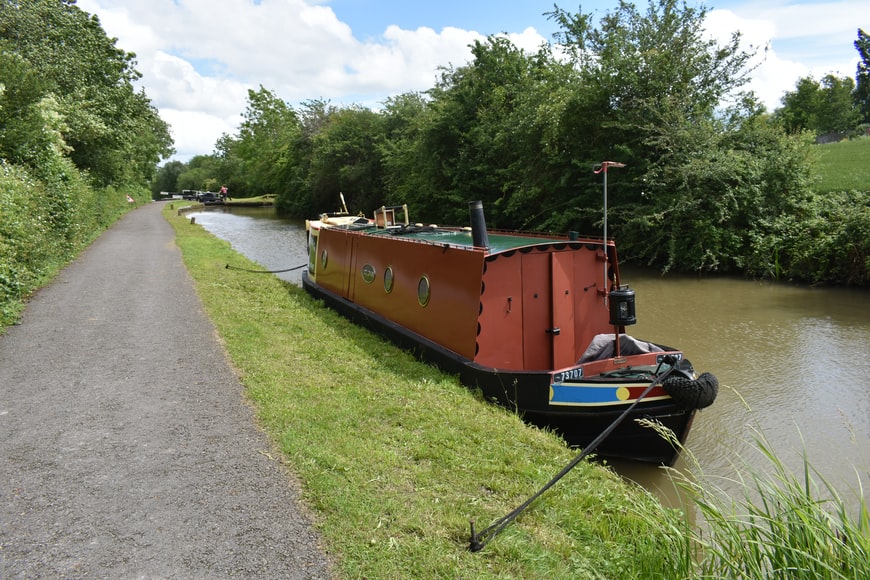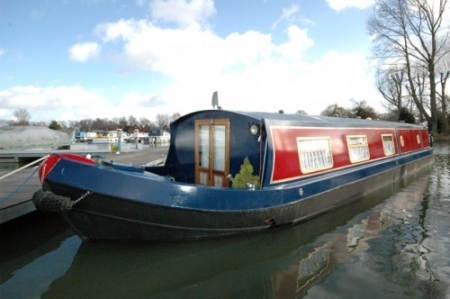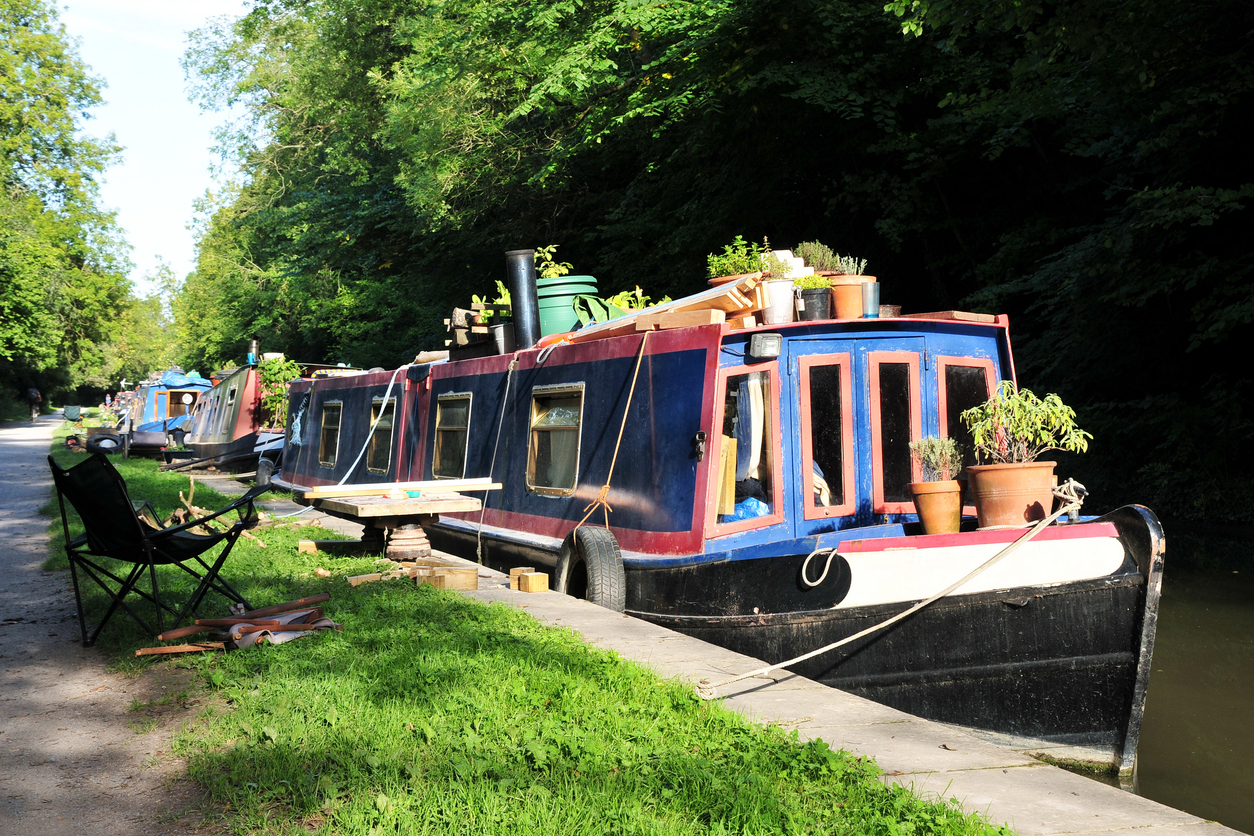As increasing numbers are drawn to life on the water, Jo Roche considers the pros and cons.
There’s an undeniable romance that goes with living on a boat. Waking to dappled patterns of light, reflected from the water, dancing across the cabin, hearing the call of ducks through your porthole, the sounds of rainfall pattering on the deck or carp nibbling the bottom of the hull. Added to that is the intrinsic freedom that cannot be found in bricks and mortar, with the ability to cast off and set sail for foreign shores at any time.
Many see it as an alternative way of life but waterways and marinas attract residents drawn from a wide variety of careers who often come together to form close-knit communities. Modern technology means an itinerate lifestyle is more possible than ever, with mobile Wi-Fi allowing workers to set up a laptop wherever they have signal, and an estimated 15,000 people are now living on boats in the UK. The numbers of boat-dwellers in the capital alone are reported to have doubled since 2010.
Among famous artists, musicians and actors who have embraced this way of life are David Gilmour, who lived on a houseboat at Hampton, Damien Hirst and Nick Cave who lived in the community of boats at Chelsea Embankment and Keira Knightley who is reported to have rented a canal boat in London’s East End as a summer hideaway.

First-hand experience
Sally, who lived aboard a 36ft yacht in a London marina with her partner for a year says it was undoubtedly cheaper than renting a flat in the same area, probably about half the price, but cautions those considering it to think very seriously about all the practicalities. Reminiscing about early morning cups of coffee on deck and the sounds of the seagulls, she recalled the things she enjoyed most about her time living aboard.
“The fact that it was quite a novel thing to do. Everybody else was talking about flats and mortgages but this was different and exciting,” she said. “And also the fact that you knew you could move whenever you wanted.”
On the downside, Sally said that in the depths of winter the boat could be cold and damp with condensation on the inside of the windows each morning. This made it challenging to turn up at the office looking fresh. However, these problems could have been remedied if they had spent money on a better heater and a dehumidifier, she admits.
As for setting sail, they never made it to foreign ports but Sally and her partner did enjoy an expedition to the South Coast, after emptying off many of their possessions. This included an exciting week racing their home at Cowes Week with friends.
Colin, a retired publican who lives on a narrow boat in Cambridgeshire says: “There is usually no problem finding a marina where you can live year-round, except on popular canals such as the Kennet & Avon. One is allowed to stay for two weeks anywhere on the canals and some people spend their time doing this and moving on.”
He particularly likes being on the water all the time, and has a community of liveaboards around him. Moving aboard didn’t mean too much of a lifestyle change, Colin says, as he had lived alone for some time, although he did have to get rid of all his furniture. But the worst part of life on the water, he says, is having to get the boat’s sewage tanks pumped out.
Cutting the cost of living
One of the greatest attractions of living on a boat is the value it provides. Unless you’re looking for a superyacht, most boats will be cheaper than a traditional home and, if you can find the right mooring, may allow you to live in the heart of a city on a much smaller budget.
However, on top of the price of a boat you will need to factor in both moorings and licences fees each year. Residential moorings can be hard to find in cities and are likely to cost as much as £12,000 a year in smarter parts of London or £7,000 in the Docklands, while outside the capital you may find a year-round mooring for £2-3,000. And, wherever you choose to moor your boat, the larger it is the higher its fees are likely to be.
As with any home you will also have utility costs, although electricity is sometimes included in marina fees. Many boats will also need diesel to run their heaters, and gas bottles to cook and you should also factor in the cost of pumping out waste water.
Paperwork, licences & approval
While many busy yachting marinas are unwilling to allow people to liveaboard full time, there are some which do permit it and even say it is good for added security to have berth holders living on site. Other boat owners opt for the riskier strategy of keeping their heads down and trying to get away with living aboard without official permission. It’s unlikely your full-time presence won’t be noticed but it appears many marina operators turn a blind eye if no problems arise – just be aware you could get told to move on at any time.

Anyone keeping a boat on a river or canal will need a license which you are required to display clearly on either side of the boat. In order to qualify for this you will also need insurance and a Boat Safety Scheme certificate, costing £180, to confirm your vessel is habitable.
The Canal and River Trust, which runs most of the waterways in England and Wales, offers licences for use on all its waterways or just for rivers, as well as houseboat certificates. The cheapest option, at £800-£1,000 per annum, is a continuous cruising licence but this requires you to move your boat at least every two weeks – and not just further up a line of moorings.
If you don’t move regularly, both the Canal and River Trust and the local authority may try to move you on and can even confiscate your boat. In recent years, increasing crackdowns have been reported on liveaboards using this sort of licence while staying in one place.
A houseboat certificate allows the holder to stay put in one location year round. The CRT defines a houseboat as “a boat whose main use is for a purpose other than for navigation, and which, if needed for the purpose, has planning permission for the site where it is moored”. Once you have found a site to keep your boat and live full time, you must be aware this will make it liable for council tax. Monthly mooring costs on permanent sites range from £80 to £1,000 a month.
Where to go to get a licence
The UK’s waterways are operated by a number of different agencies:
Canal & River Trust – runs 96 canals and navigable rivers in England and Wales
Environment Agency – operates the River Thames, River Medway and rivers in East Anglia
The Broads Authority – runs the Norfolk and Suffolk Broads
Scottish Canals – run five canals in Scotland
For more information about licences from the Canal & River Trust see https://canalrivertrust.org.uk/enjoy-the-waterways/boating/buy-your-boat-licence/licensing-faqs


